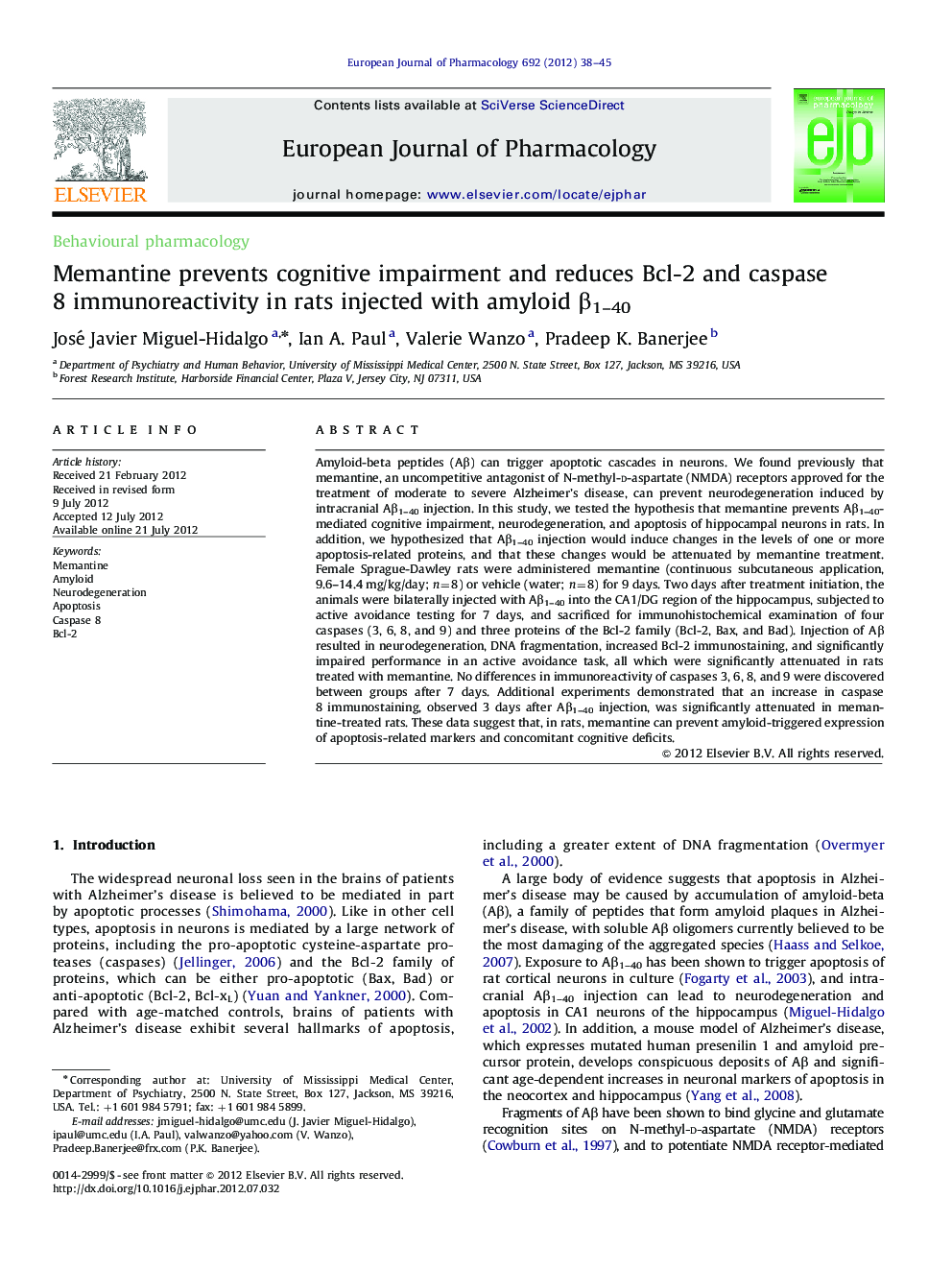| Article ID | Journal | Published Year | Pages | File Type |
|---|---|---|---|---|
| 2532328 | European Journal of Pharmacology | 2012 | 8 Pages |
Amyloid-beta peptides (Aβ) can trigger apoptotic cascades in neurons. We found previously that memantine, an uncompetitive antagonist of N-methyl-d-aspartate (NMDA) receptors approved for the treatment of moderate to severe Alzheimer's disease, can prevent neurodegeneration induced by intracranial Aβ1–40 injection. In this study, we tested the hypothesis that memantine prevents Aβ1–40-mediated cognitive impairment, neurodegeneration, and apoptosis of hippocampal neurons in rats. In addition, we hypothesized that Aβ1–40 injection would induce changes in the levels of one or more apoptosis-related proteins, and that these changes would be attenuated by memantine treatment. Female Sprague-Dawley rats were administered memantine (continuous subcutaneous application, 9.6–14.4 mg/kg/day; n=8) or vehicle (water; n=8) for 9 days. Two days after treatment initiation, the animals were bilaterally injected with Aβ1–40 into the CA1/DG region of the hippocampus, subjected to active avoidance testing for 7 days, and sacrificed for immunohistochemical examination of four caspases (3, 6, 8, and 9) and three proteins of the Bcl-2 family (Bcl-2, Bax, and Bad). Injection of Aβ resulted in neurodegeneration, DNA fragmentation, increased Bcl-2 immunostaining, and significantly impaired performance in an active avoidance task, all which were significantly attenuated in rats treated with memantine. No differences in immunoreactivity of caspases 3, 6, 8, and 9 were discovered between groups after 7 days. Additional experiments demonstrated that an increase in caspase 8 immunostaining, observed 3 days after Aβ1–40 injection, was significantly attenuated in memantine-treated rats. These data suggest that, in rats, memantine can prevent amyloid-triggered expression of apoptosis-related markers and concomitant cognitive deficits.
